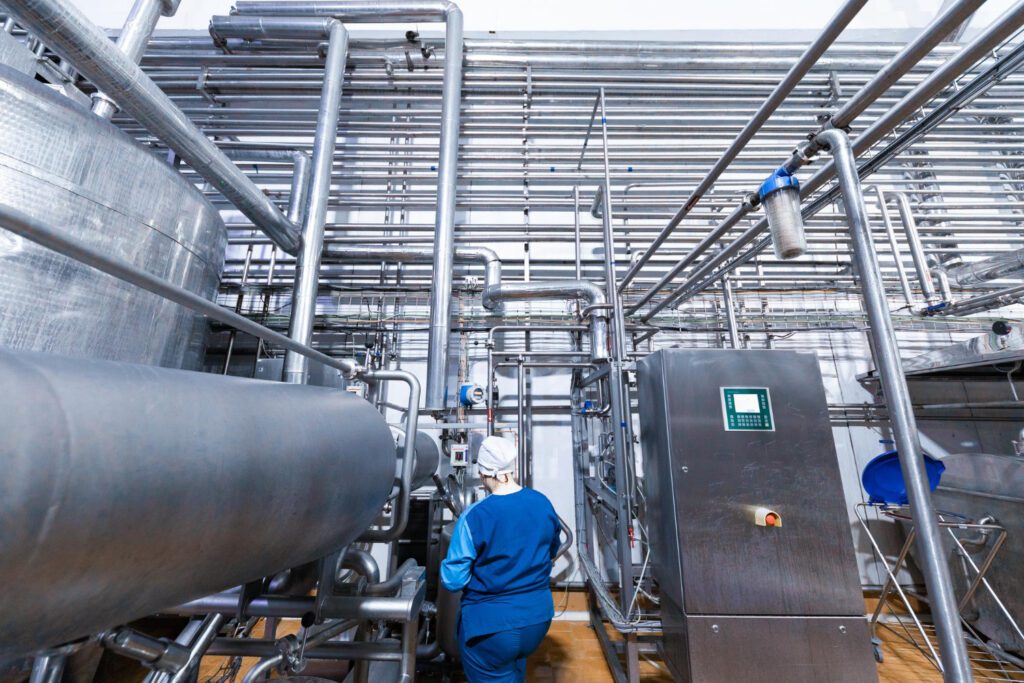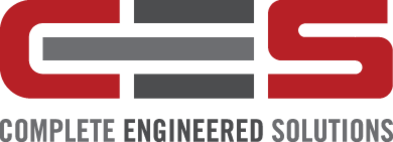Exploring the Diverse Applications of Industrial Vacuum Systems

Many manufacturing, environmental, construction, and scientific processes would be inefficient, toxic, or contaminated without robust industrial vacuum systems that provide health, safety, and environmental solutions. These systems offer a cost-effective solution for many industries that generate large amounts of airborne dust, fibers, gases, vapors, or debris.
The applications for vacuum technology are wide-ranging, from promoting the operation of an industrial chiller that uses vacuum technology to quickly cool water to research laboratories that utilize high-tech vacuum pumps that enable the identification and measurement of an extensive array of molecules using mass spectrometry (MS) technology.
Here, we explore the diverse industrial applications that use vacuum technology to accomplish modern-day feats.
Basics of Industrial Vacuum Systems
Industrial vacuums are used to quickly evacuate gas, vapors, or air from an environment. This may be equipment, rooms, tanks, or pipes that operate best in a vacuum state. Different methods exist for evacuating an area, but industrial vacuum systems or medical vacuum pumps typically categorize industrial vacuum systems.
Complete Engineered Solutions manufactures the following industrial vacuum systems:
- Single Vacuum Pumps – oil-free rotary vane or rotary claw simplex or duplex units
- Central Vacuum Systems – multiple dust collectors and/or pumps at one centralized location
- Process Vacuum Systems – large rotary screw systems with PLC controllers for sequencing and remote monitoring
Applications for Industrial Vacuum Technology
Material Handling and Cleanup
Material handling, storage, and transport will often have to deal with toxic or dangerous environmental products. Employers look to protect their workers by installing industrial vacuum systems that can quickly clear toxic air from a space. Vacuums are often used in bulk material handling in specific industries such as cement, powder chemicals, and mining (especially coal and iron ore) to reduce airborne particulate matter’s environmental and health impacts.
Waste Management and Environmental Cleanup
Large amounts of industrial waste and debris must be removed in environments where waste is a byproduct of manufacturing processes or due to an environmental spill. Often, waste must be removed from places that are difficult to reach. Here, an industrial vacuum that handles wet or dry materials, and even thick sludge and slurries, can get the job done in record time.
Industrial Processes and Production
Many tough industrial environments release toxic fumes, fibers, and moisture into the air. An industrial vacuum system is used in steel mills, paint or coatings applications, and petroleum and chemical processing. An industrial vacuum can be placed within or near pits, tanks, rooms, and conveyors or be integrated into the plant’s HVAC system to keep the air clean for employees working around unhealthy industrial processes and production equipment that may emit fumes.
Maintenance and Facility Management
Central vacuum systems can be used to control air quality in industrial and commercial buildings that experience environmental pollutants, mold and moisture, VOC off-gassing, radon, carbon monoxide, or particulate matter. If your facility has been assessed with poor air quality, an industrial vacuum system can remove and replace building air faster than a typical HVAC system.
Hazardous Material Handling and Safety
OSHA demands that systems be in place to protect employees from hazardous materials, especially air-borne contaminants that can cause short-term upper respiratory distress and long-term negative health outcomes. An industrial vacuum is your first line of defense against hazardous materials that may produce toxic dust and debris. Hazardous material is collected within the vacuum system to be removed and discarded later.
Research and Scientific Applications
A wide range of research and scientific processes benefit from industrial vacuum systems. These include the following:
- Mass spectrometry (MS) – vacuum pumps and MS units enable the near-immediate identification and measurement of thousands of types of molecules
- Residual gas analyzer (RGA) – uses a vacuum environment to detect and measure minute traces of impurities in a gaseous environment
- Space research – Vacuum systems add insight into black holes and gravitational wave research to promote space exploration
- Hyperloop rail systems – a sealed tube with vacuum pressure and low-friction propulsion to promote hyper-[fast rail travel.
Automotive and Aerospace Industries
Automotive and aerospace engineers use vacuum systems on the factory floor to clear the working environment of contaminants that may harm workers. Paint booths, heat treating, and metal fabrication, including brazing, tempering, and case-hardening, can all produce toxic and/or flammable fumes. Industrial vacuums are used to remove airborne contaminants and harmful substances to make these work environments OSHA-compliant.
Oil and Gas Industry
Large vacuum pumps are used in the oil and gas industries to extract products and deliver the raw products through pipelines to the processing plant. Vacuum-assisted oil and gas processing that boosts the transfer of low-pressure liquids, gases, and other materials to other locations is a vital component of field operations and is responsible for the enhanced recovery of natural resources.
Food and Beverage Processing
To prevent the rapid deterioration of fresh food and beverage products, vacuum systems are implemented as a method of food preservation and food packaging. The vacuum pumps are used to maintain an appropriate pressure to quickly evaporate water content, followed by a freeze-drying or shock-freezing process. Vacuum packaging creates end-user products that are sealed tight to increase shelf life significantly.
Complete Engineered Solutions – A One-stop Provider of Industrial Vacuum and Industrial Chiller Systems
Visit Complete Engineered Solutions online for more information about our custom industrial vacuum and chiller systems used in a wide range of industrial, environmental, research, and pharmaceutical applications. We are a single-source provider of turnkey vacuum systems, including design and field service, parts and equipment, and the control and monitoring systems to automate your processes fully.
Our design and engineering staff can design, build, and maintain a vacuum system for your facility, including a single point-of-use system or an integrated multi-vacuum system. Our systems can help reduce operational costs, lower maintenance efforts, and increase workplace safety.
